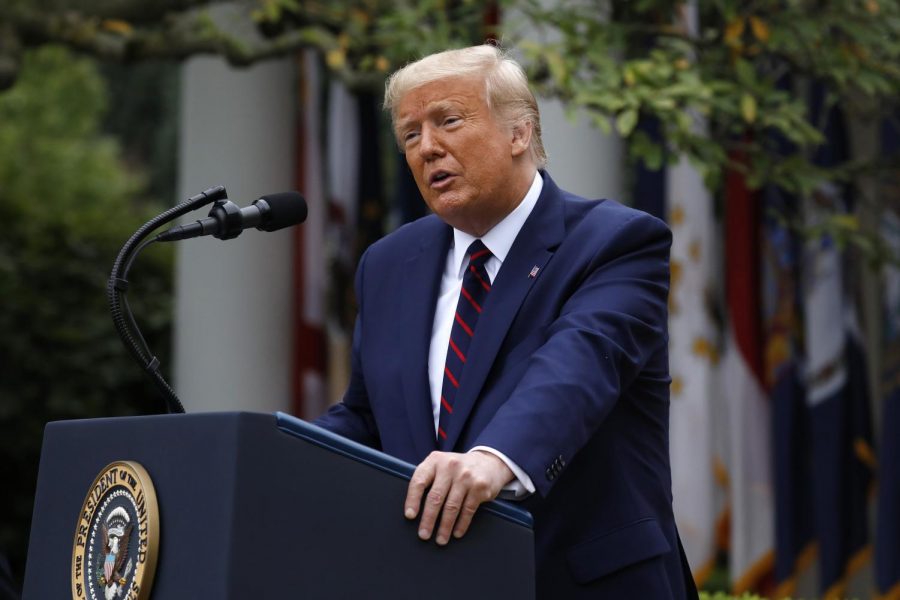New Exec. Order excuses racism
Emerson Slomka discusses President Trump’s new “1776 commision” and its possible consequences.
Sep 28, 2020
“Today, I am also pleased to announce that I will soon sign an Executive Order establishing a national commission to promote patriotic education. It will be called the ‘1776 Commission.’ It will encourage our educators to teach our children about the miracle of American history and make plans to honor the 250th anniversary of our founding.” President Trump, 2020
On Sept. 17 President Donald Trump announced a proposal for an education commission to promote a “pro-American curriculum,” predominantly in response to the New York Times’ 1619 project, which “aims to reframe the country’s history by placing the consequences of slavery and the contributions of Black Americans at the very center of our national narrative.” In his address, President Trump rejected critical race theory (the idea that racism occurs systemically and is an inherent part of American law and institution), and accused “the left” of attempting to “silence dissent, to scare you out of speaking the truth, and to bully Americans into abandoning their values, their heritage, and their very way of life.”
Given his decision on Sept. 4 to order federal agencies to halt racial sensitivity trainings, it seems
that President Trump is adamant about blatantly ignoring not only the United States’ racist history, but its racist present as well.
Upon hearing President Trump’s address, it was only a matter of time until critics began to draw comparisons between the proposed 1776 Commission and the indoctrination of German youth during the Third Reich—that same day, “Hitler Youth” began trending on Twitter. Really, it’s hard not to see parallels between the two—“education” and “pro-anything” shouldn’t go together.
Creating a “pro-American curriculum” would involve erasing all facets of history in which Americans were not purely noble and heroic (which would, arguably, be all facets of American history—no country has a clean reputation, and ours is no exception). President Trump uses the word “patriotic” repeatedly in his address, trying to assure listeners that his education plan is for the betterment of the United States of America. However, the belief that the United States of America is superior to all other countries isn’t patriotic; it’s nationalistic, and nationalism is a dangerous mentality to have. Right-wing nationalism is a slippery slope that leads directly to fascism, which is a threat many Americans fear is becoming a reality.
Propaganda in American schools is nothing new, however—American history classes have always been founded on the concept of promoting American excellence—they tell a story of a pilgrimage to a new, foreign land, a glorious battle for independence, and how America became the land of opportunity, all while glossing over the uncomfortable truth of genocide, slavery and mass poverty. It’s hard to imagine how the curriculum could become any more blindly pro-America, but one can only imagine that any mention of genocide, slavery, and mass poverty will be completely excluded from the narrative in favor of total glorification of America and its figures— as un-nuanced and one-sided as needed to promote the idea that America is flawless and beyond criticism.
Needless to say, indoctrination has no place in our schools. Schools are a place of learning, and history courses should teach the full story—comfortable or not—and students should be urged to analyze historic events and think about them critically. If America truly was great, we wouldn’t have to lie to children to convince them of it. President Trump has threatened to withhold funding from schools who refuse to teach his proposed curriculum, which is illegal under the Every Student Succeeds Act (ESSA), so it is unlikely that the 1776 Commission could be legally mandated, but the mere fact that the president would blatantly suggest indoctrinating school children should be cause for concern.








